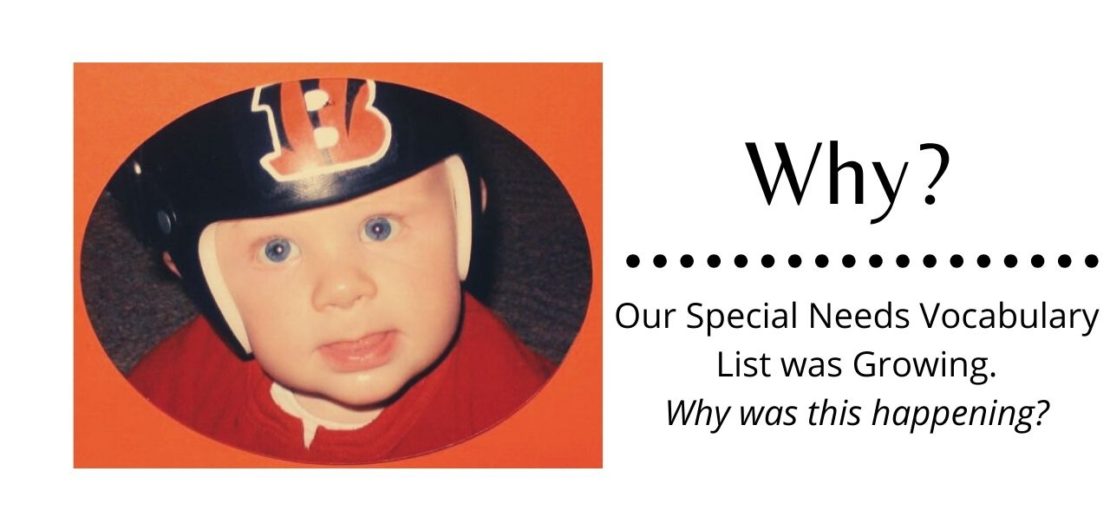
Why?
From the Archives of our Special Needs Journey: I wrote the following when I was reflecting on Kyle’s first year and not understanding why Kyle was born with this growing list of symptoms.
While on a weekend trip with Jesse’s family, I closely watched our nephew because he was only four months older than Kyle. I saw the types of things he was doing, knowing that Kyle would be at that stage soon. However, when I got Kyle out of the car after returning from the trip, I couldn’t help but notice that Kyle felt different in my arms compared to when I had held my nephew. “Why did Kyle feel so difficult to support? Why didn’t he put his arm on my arm to hold himself upright? Why do I feel that something is different about Kyle?” I kept those thoughts to myself, knowing I was probably being a very worrisome first-time mother.
To correct the torticollis, Kyle began physical therapy (PT) at our Children’s Hospital. We faithfully did the home exercises but oh, how Kyle and I hated those exercises! I had to hold his body in certain positions while gently stretching his neck; he cried and cried while I wished I didn’t have to do this to him. And to correct the plageocephaly created from the torticollis, Kyle was fitted for a helmet. It was during our PT appointments that the therapist mentioned a new word: hypotonia (low muscle tone). She believed that it was the hypotonia that Kyle had throughout his whole body that kept him from reaching certain milestones and made it difficult for him to support himself.
I learned that everyone has a range of muscle tone and that Kyle had abnormally low tone. One therapist explained it this way: muscle tone is not how much strength we have but how our muscles respond to motions. For example, imagine seeing a suitcase you believe to be empty and when you go to pick it up, it is extremely packed and your muscles aren’t ready for the weight. This is how people feel who have low muscle tone. But with therapy, he would outgrow this, right? He would eventually learn everything and catch up to other kids his age. Right?
But at about the same time, Jesse’s parents expressed their concern about a slight shifting back and forth of Kyle’s eyes. It was something I had just begun to notice as well, so to hear someone voice out loud a concern I already had, made it that much more concerning. Kyle’s physical therapist also noticed Kyle’s eyes shifting, and referred us to a pediatric eye doctor at Children’s. The eye doctor introduced yet another word that I would add to our vocabulary and learn to pronounce and spell correctly: nystagmus. He said that Kyle’s eyes may always do this and that it would be something he would learn to accommodate, such as turning his head a certain way to prevent the movement. He also wanted to schedule Kyle to have an MRI to rule out any other underlying causes of the nystagmus. The day I got the results from the MRI, I wrote to Kyle: Great results from the neurologist concerning your MRI: nothing’s wrong!
But at the same time, something wasn’t quite right, either. We were gradually learning that Kyle had special needs and I didn’t quite know what to think. “Wait a second, God!” I cried. “I prayed for Kyle almost every day of my pregnancy! This should not be happening! Why was Kyle born like this? Why is this happening to our family?”